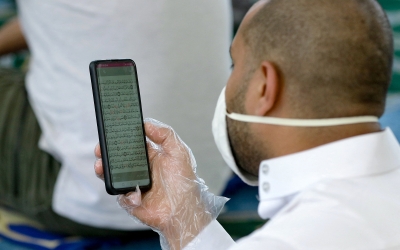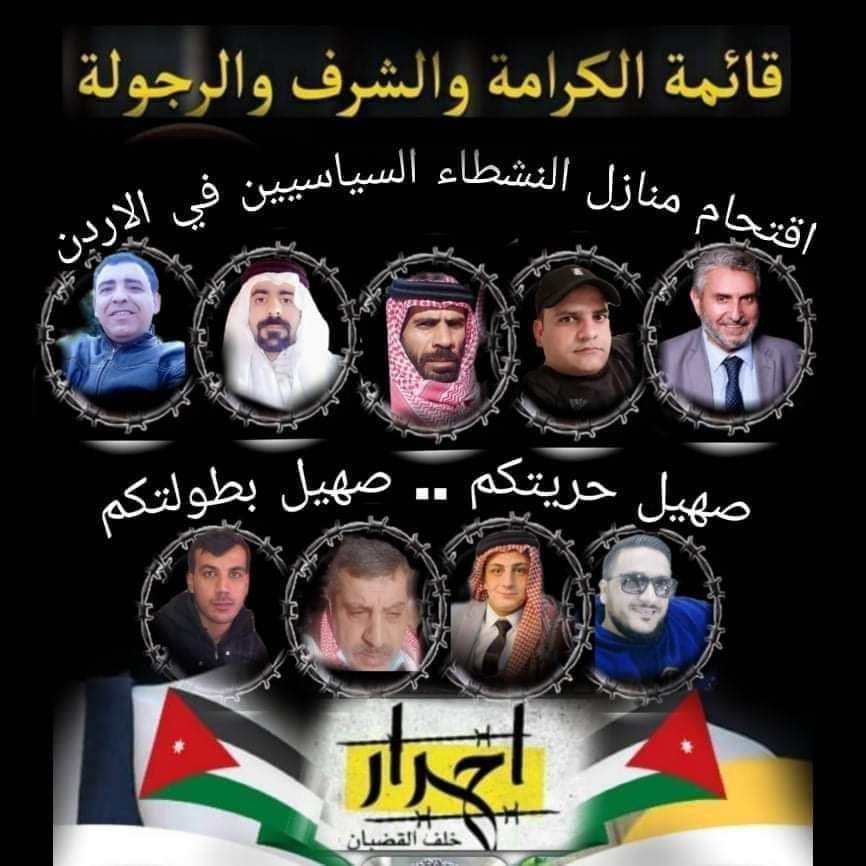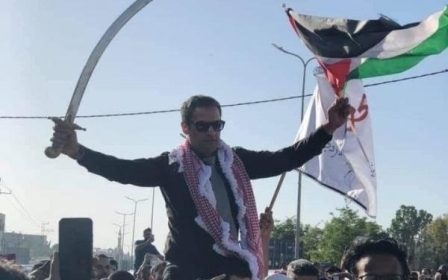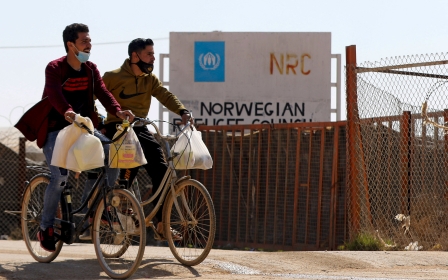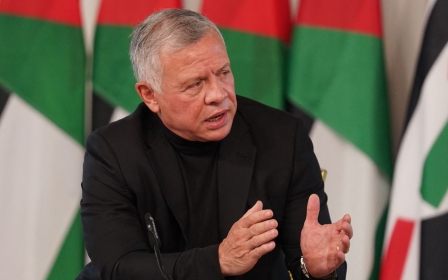Arrests in Jordan spark fury and rare public rebukes of the king
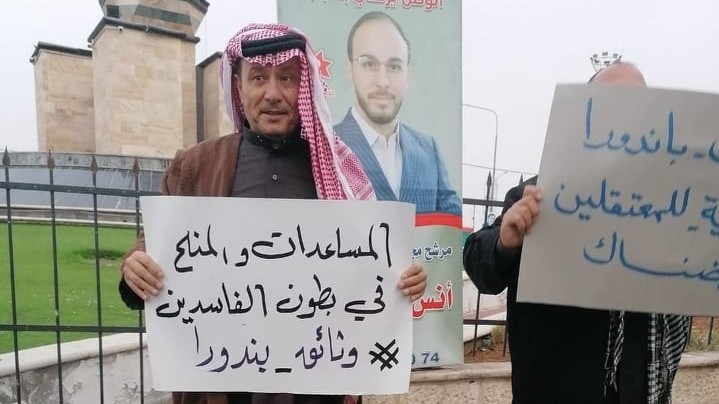
The arrest of 10 Jordanians who criticised their government and warned of corruption among the kingdom’s leaders has been met with fury and even rare public rebukes of King Abdullah II.
All the detainees, who belong to the Bani Hassan tribe, are alleged to have responded to calls by a prominent opposition figure to pressure the government over privatisation and alleged corruption, according to lawyer Mohammad al Majali.
“Nine of the detainees were accused of spreading false rumours based on information on social media,” said Majali, who represents some of the detainees.
“This is a violation of the Jordanian constitution, which guarantees freedom of expression.”
The arrests were carried out earlier this week in a synchronised operation. Families of the detainees published videos showing security forces breaking into some of their homes to arrest them.
'People are tired of being quiet, better to live in dignity or die. We want dignity and freedom regardless'
- Protesters in Salt
On Thursday, protests erupted in various parts of Jordan, calling for the detainees’ release and “the return of the country’s wealth”.
Members of the Bani Hassan tribe, the largest in Jordan, protested in Zarqa, accusing corrupt officials of taking international aid and grants, highlighting Jordan’s connection to the Pandora Papers scandal, and saying King Abdullah is ultimately responsible.
In the western city of Salt, tens of demonstrators gathered in Ein square. They chanted anti-ruling establishment songs, including one that appeared to refer to the king, that said “we no longer say ‘long live’, why should we die and he lives”?
Jordan’s economy was struggling long before the pandemic, but Covid-19 and its related restrictions have only worsened the situation.
Successive governments have relied on international bailouts and neoliberal privatisation economic policies to try and keep the kingdom afloat. But that has caused discontent among many Jordanians, who ask where the money has gone and bristle at the sale of state property.
In Salt, the protesters sang: “people are tired of being quiet, better to live in dignity or die. We want dignity and freedom regardless of the thieves. We are not a shop for the Americans or the Zionist entity".
Electronic vote
A march in central Amman’s Tafileh neighbourhood is expected on Friday evening. Representatives of its residents issued a statement saying they “reject the waste of the homeland’s resources and the theft of its wealth, while freedom seekers are being arrested”.
Another bone of contention for the Tafileh residents, they said, was the recent constitutional reforms that have concentrated more powers in the king’s hands. Open criticism of the king is rare and occasionally dangerous in Jordan, but demonstrators held him personally responsible for the kingdom’s direction and woes.
Mouin Harasis, an activist from Taflieh, believes the arrests of activists from all over Jordan represent “a clear message to all”.
According to Harasis, the trouble began when opposition figurehead Layth Shbilat began calling for the return of “stolen” Jordanian state wealth on social media.
He said the arrests appear to have been a pre-emptive act to nip any campaign in the bud, “to deter others with the big show of security forces used to make the arrests”.
Shbilat had appeared in a video accusing the king and his entourage of being behind controversial privatisation deals at Aqaba port, the airport, and the phosphate company. He called on Jordanians to give him “an electronic vote of support so I can get back your stolen money”.
Arabic hashtags saying “Layth Shbilat represents me” and “we empower you” began to trend on social media.
On Clubhouse, an app that acts as a forum for public debate, Jordanians have appeared enthused by Shbilat’s ideas. Since the arrests, they have also expressed deep concern over personal freedoms. Clubhouse is blocked in Jordan, but people nonetheless used VPNs to express their grievances.
One Clubhouse event held on Thursday was titled “Activities of the hirak of the Bani Hassan tribe and Salt in the call for freedom for the prisoners".
In all these events the focus was on holding King Abdullah responsible for the retreat of personal freedoms in Jordan. People said Jordan had become a police state.
Middle East Eye has asked Shbilat for comment.
Government rebuttal
The Jordanian government has attempted to downplay the arrests, framing them as simply following procedure according to the law with no political overtones in the slightest.
A government source told the official Petra News agency said that the detainees were arrested based on calls by the judiciary on charges of “broadcasting false news that aims at causing internal strife”.
Omar Abu Rasaa, an official at the Hirak, a popular movement that emerged in 2011, told MEE that the arrests were unprecedented in the way they were carried out and the charges they were based on.
He noted that despite the government’s attempts to frame the arrests as non-political, all the detainees were Hirak activists.
“In the past, they would be charged with lèse-majesté, but the change of charge appears to be connected to the speech made by the opposition figure Shbilat,” he said.
“The arrests are a form of terrorizing the activists in Jordan. It is a pre-emptive move to stop the protests on the ground before they take place.”
Middle East Eye propose une couverture et une analyse indépendantes et incomparables du Moyen-Orient, de l’Afrique du Nord et d’autres régions du monde. Pour en savoir plus sur la reprise de ce contenu et les frais qui s’appliquent, veuillez remplir ce formulaire [en anglais]. Pour en savoir plus sur MEE, cliquez ici [en anglais].


